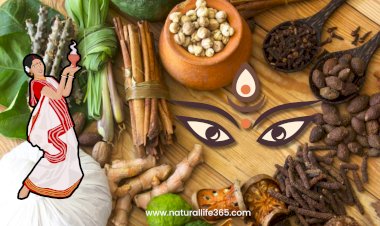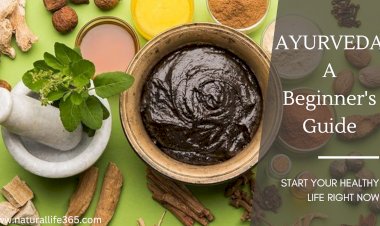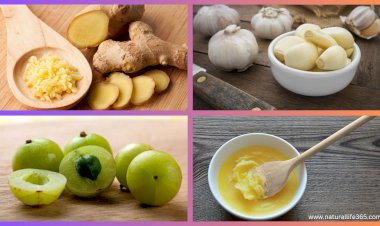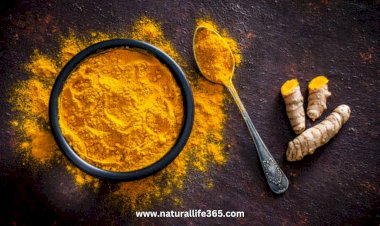The Science of Turmeric: Why This Golden Spice Is a Superfood
Unlock the powerful health benefits of turmeric, from fighting inflammation to boosting immunity, with scientific insights.
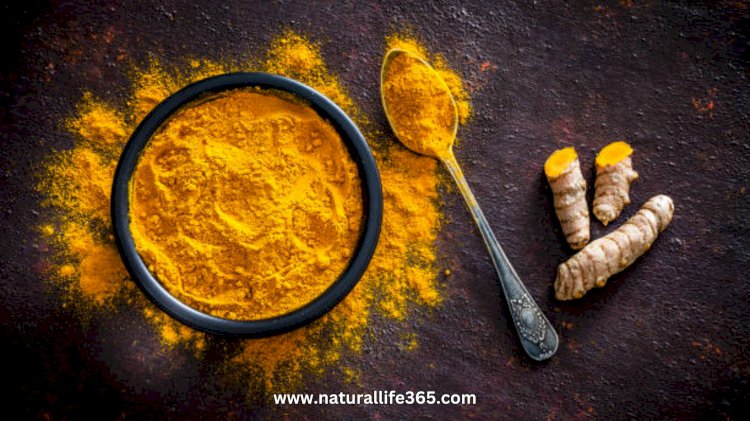
If you’ve ever walked through a spice market or opened your kitchen cabinet, chances are you’ve encountered the warm, earthy scent of turmeric. This vibrant golden spice, known for giving curry its distinctive color, has been celebrated for centuries in Ayurvedic and traditional Chinese medicine. But beyond its culinary charm, science is now catching up to what ancient wisdom has known all along: turmeric is much more than a flavor booster—it's a genuine superfood.
In this article, we’ll take you on a deep dive into the health benefits of turmeric and curcumin, explore the anti-inflammatory properties of turmeric, and explain how turmeric boosts immunity and digestion. So grab a warm cup of golden milk (or turmeric tea), and let’s explore the golden truth behind this ancient remedy.
You can also read Say Goodbye to Acne and Dark Spots with Turmeric
Golden Beginnings: What Is Turmeric, and What Makes It So Special?
Turmeric comes from the root of the Curcuma longa plant, which is part of the ginger family. Native to South Asia, it has been used for over 4,000 years in cooking, medicine, and even spiritual practices.
The magic of turmeric lies in one of its primary active compounds: curcumin. This bright yellow polyphenol is where most of turmeric’s powerful health benefits are concentrated. However, there’s a catch—curcumin makes up only about 3% of turmeric by weight, and it’s not easily absorbed by the body on its own. That’s why many supplements combine curcumin with black pepper extract (piperine) to significantly enhance absorption.
The Natural Healer: Anti-Inflammatory Properties of Turmeric

Let’s start with one of turmeric’s most praised superpowers: its anti-inflammatory effects.
Inflammation isn’t inherently bad—it’s a crucial defense mechanism that helps our bodies fight infections and heal wounds. But when inflammation becomes chronic, it can silently contribute to serious health conditions like heart disease, cancer, Alzheimer’s, and arthritis.
Curcumin works by targeting multiple steps in the inflammatory pathway. It blocks the activity of NF-κB, a molecule that travels into the cells and activates inflammation-related genes. By doing so, turmeric helps reduce chronic inflammation without the side effects commonly associated with long-term use of pharmaceutical anti-inflammatories.
Real-Life Impact:
- People with rheumatoid arthritis have reported reduced joint swelling and pain after supplementing with curcumin.
- Studies also show that curcumin may be as effective as some over-the-counter anti-inflammatory drugs, like ibuprofen, for managing inflammation-related discomforts.
A Guardian for Your Gut: How Turmeric Boosts Immunity and Digestion
Turmeric doesn’t stop at calming inflammation. It also plays a vital role in strengthening immunity and promoting digestive health, two systems that are deeply interconnected.
The Gut-Immune Connection
Did you know that nearly 70% of your immune system lives in your gut? When your digestive system is healthy, your immune responses are stronger and more balanced. Turmeric helps on both fronts:
Boosts Digestion
Turmeric stimulates the gallbladder to produce bile, which is essential for breaking down fats and ensuring smooth digestion. It also helps relieve symptoms of bloating, gas, and indigestion. In traditional Indian households, a pinch of turmeric in warm water or milk is a go-to remedy for upset stomachs.
Supports Gut Health
Turmeric has been shown to have a prebiotic effect, promoting the growth of beneficial gut bacteria. A balanced gut microbiome can improve everything from nutrient absorption to mood regulation.
Strengthens Immunity
Turmeric’s antioxidant and antimicrobial properties help the body fight infections. Curcumin enhances the activity of T-cells, B-cells, and natural killer cells—all of which are essential for a robust immune response. During cold and flu season, incorporating turmeric into your daily routine can provide a gentle, natural boost to your body’s defenses.
You can also read Turmeric vs Curcumin: Which Should You Take?
Brain, Heart, and Beyond: The Whole-Body Benefits of Turmeric
We’ve looked at inflammation, immunity, and digestion, but turmeric’s benefits don’t stop there. Let’s take a tour of how this golden spice supports your entire body.
Brain Health
Curcumin has been shown to cross the blood-brain barrier and stimulate the production of brain-derived neurotrophic factor (BDNF), a protein that supports the growth and survival of neurons. Low levels of BDNF are linked to depression and neurodegenerative diseases like Alzheimer’s.
Early research suggests that curcumin may reduce the buildup of amyloid plaques, which are associated with Alzheimer’s disease. While more studies are needed, the results are promising.
Heart Health
Curcumin improves the function of the endothelium—the lining of your blood vessels. Endothelial dysfunction is a major factor in heart disease. Turmeric also reduces oxidative stress and inflammation, both of which contribute to cardiovascular issues.
In fact, some studies show that curcumin supplementation is comparable to exercise in improving endothelial function. That doesn’t mean you should skip your daily walk—but it’s a powerful ally.
Cancer Prevention Potential
Although it’s too early to call curcumin a cure, many lab studies have shown that it can inhibit the growth of certain cancer cells and prevent their spread. It appears to interfere with the development and progression of cancer at the molecular level.
Researchers are exploring its potential use in complementary cancer therapies, particularly for cancers of the colon, breast, pancreas, and prostate.
How to Use Turmeric: Practical Tips for Everyday Life

Photo by Dasha Klimova
It’s clear that turmeric is a superfood, but how can you actually incorporate it into your daily life in a way that’s delicious, easy, and effective?
Cook with It
- Add it to curries, soups, rice dishes, and scrambled eggs.
- Mix it with roasted vegetables or blend it into sauces and dressings.
Drink It
- Try a turmeric latte (a.k.a. golden milk) made with milk or a plant-based alternative, a dash of black pepper, a touch of honey, and a bit of ginger or cinnamon.
- Brew turmeric tea with lemon and honey for a soothing drink.
Take Supplements
If you’re aiming for therapeutic benefits, consider a high-quality curcumin supplement with piperine. Always consult your healthcare provider before starting any supplement, especially if you’re on medication or pregnant.
A Word of Caution: Turmeric Isn’t Magic for Everyone
Although turmeric is generally safe for most people when consumed in moderate amounts, it’s not without side effects or contraindications.
- High doses of curcumin can cause digestive issues, such as nausea or diarrhea.
- It may interact with blood thinners, diabetes medications, and drugs that reduce stomach acid.
- People with gallbladder disease or kidney stones should consult a doctor before increasing their turmeric intake.
As with any natural remedy, balance is key.
FAQs About Turmeric: What Everyone Wants to Know
What’s the difference between turmeric and curcumin?
Turmeric is the whole root (Curcuma longa), while curcumin is its main active compound, responsible for most of its medicinal benefits. Think of it like the relationship between coffee and caffeine: one is the full food, the other is its star ingredient.
Is it safe to consume turmeric every day?
Yes, in general, it’s safe for most people when consumed in moderate amounts (for example, 1–3 grams per day in food). However, if you’re taking high-dose curcumin supplements, it’s important to consult a doctor.
What’s the best way to consume turmeric to absorb its benefits?
Ideally, combine it with a source of fat (such as coconut oil or avocado) and black pepper. The piperine in black pepper increases the absorption of curcumin by up to 2000%.
Can children take turmeric?
Yes, but in small doses and always as part of food, not in supplement form. Consult a pediatrician if you're considering it for therapeutic use.
Is turmeric safe during pregnancy?
When used as a spice in food, it’s generally safe. However, curcumin supplements are not recommended during pregnancy or breastfeeding unless specifically advised by a doctor.
Turmeric Around the World: How Different Cultures Use It
Even though turmeric is often associated with Indian cuisine, its presence is global and diverse. Let’s see how various cultures have embraced and adapted it:
India: The heart of Ayurvedic medicine and cooking
Turmeric has been used here for millennia, in everything from curries to religious rituals. The famous "haldi doodh" (golden milk) is a common home remedy for colds and joint pain.
Thailand and other Southeast Asian countries
Turmeric is used in yellow curries, broths, and even as a natural dye for rice. In traditional Thai medicine, it’s combined with herbs like ginger and galangal to ease digestive issues.
Morocco and North Africa
Turmeric is part of spice blends like ras el hanout, used in tagines and stews to add flavor and color.
Modern West: The wellness boom
Turmeric has been reinvented as a wellness icon: lattes, morning shots, vegan capsules, and skincare products. Its popularity in social media and health stores keeps growing.
Your Golden Routine: How to Incorporate Turmeric Daily
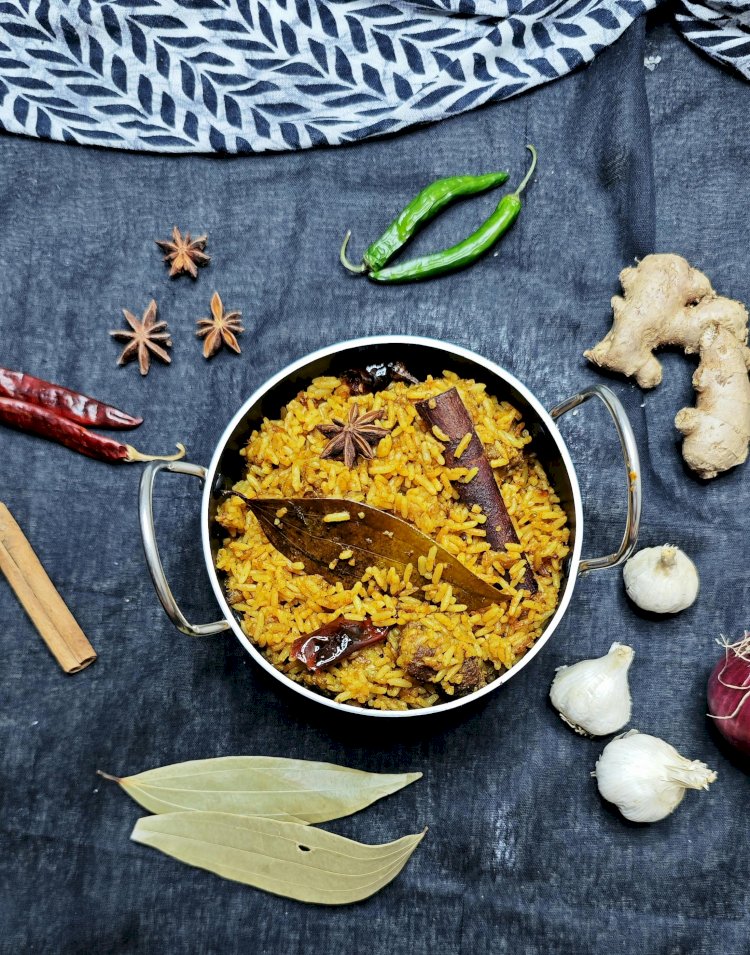
Photo by Masuma Rahaman
You want to enjoy the benefits of turmeric, but without turning into an Ayurvedic guru or spending hours in the kitchen. Here’s a simple, practical, and effective routine to bring this superfood into your daily life:
Morning
- On an empty stomach: A glass of warm water with turmeric, lemon, and a pinch of black pepper.
- Breakfast: Add turmeric to your omelet or a green smoothie with mango, spinach, and coconut milk.
Midday
- Lunch: Use it in homemade dressings, soups, lentils, or brown rice with sautéed veggies.
- Snack: A handful of nuts and turmeric tea with ginger.
Evening
- Dinner: Curry chicken, marinated tofu, or veggie soup with turmeric and olive oil.
- Before bed: Golden milk with turmeric, cinnamon, ginger, and a touch of honey.
Optional supplement
If you’re aiming for a specific therapeutic effect (like chronic pain, inflammation, arthritis), you can consult about a standardized curcumin supplement with piperine.
Conclusion: Your Long-Term Golden Ally
Turmeric isn’t a magical cure, but it is a powerful and accessible ally for anyone seeking a healthier lifestyle. Incorporating it is a small yet mindful habit that, over time, can help reduce inflammation, improve digestion, strengthen immunity, and protect your brain and heart.
In a world full of quick fixes and artificial products, turmeric reminds us of something essential: health begins with what’s natural, simple, and part of our daily lives.
References:
- Healthline – 10 Proven Benefits of Turmeric and Curcumin
- National Institutes of Health (NIH) – Curcumin: A Review
- PubMed Study – The Effect of Curcumin on Inflammatory Markers
- WebMD – Turmeric and the Immune System
If you value these free online resources provided by Natural Life 365, please consider supporting my website by sharing the blogs ![]()













